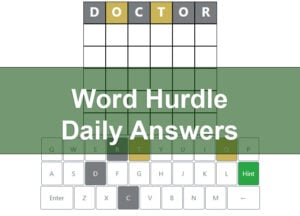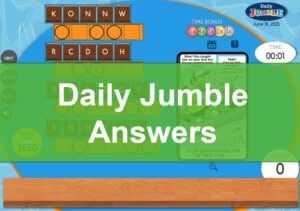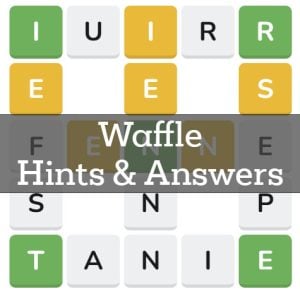Looking for the answers and hints for the Quordle puzzle from July 9, 2025? You’ve come to the right place! Every day, we archive the solutions to help you check your work or get that final clue you need. Below you will find all the answers for yesterday’s Quordle challenge.
Quordle Hints for July 9, 2025
Here are all the official hints to guide you toward the solution.
Word 1 Hints:- The first word has a pattern of one consonant, followed by a vowel, then three alternating consonants and vowels. It is a five-letter word with no repeating letters.
- This word is a noun and often evokes a pastoral or bucolic feeling.
- The term often refers to an administrative division of land, historically rooted in specific regions of the United Kingdom.
- You might find this word used when discussing traditional management structures of the countryside, particularly in medieval contexts or fantasy literature.
- Think of a cozy term that might remind you of a Tolkien novel, where the setting is in a rural and quaint locality where hobbits may reside.
- The word consists of five letters, with the first letter being the same as the last one. It contains only one vowel, which appears in the middle of the word.
- This word functions both as a noun and an ordinal adjective, denoting a specific position in a sequence.
- This term is related to numerical order, often used in contexts involving ranking or sequences.
- You might commonly encounter this word when discussing the placement of competitors in a race or the order of chapters in a book.
- If you're counting past the number where you need more than one hand, this word would describe the position of the first contender on your second hand.
- The word has a pattern of one consonant, followed by a vowel, and ends with three consecutive consonants.
- This is a verb that describes what happens to something under intense heat or fire.
- It belongs to the category of actions related to heat treatment or effects of fire.
- It's what you might do to the edges of a piece of paper or fabric to quickly burn off frays without causing it to fully catch fire.
- This term is also used metaphorically when someone gets very light criticism or a minor reprimand – they might have been said to barely get "_______".
- The fourth word follows the consonant-vowel-vowel-consonant-consonant pattern.
- This term is a noun and is often used as a term to represent or describe visual representations or likenesses.
- This concept is heavily associated with the visual arts, photography, and graphic design fields.
- You would frequently encounter this word when discussing the contents of a picture frame or when referring to what you see when you look into a mirror.
- If you want to capture a moment or a view to remember it later or show someone else, you might use a device to create this. It's not just worth a thousand words, but it is made up of thousands of pixels in the digital era.
Spoiler Warning!
The final answers are below. Stop scrolling now if you want to solve it yourself!
Quordle Answer for July 9, 2025
Here is the final, official answer for the Quordle puzzle that was released on July 9, 2025.
A shire is a noun that historically refers to a division of land in England, analogous to a county. It's commonly used in the UK to denote a rural region, for example, "Worcestershire" or "Yorkshire." The word "shire" originally comes from the Old English "scir," meaning care or official charge, related to the governorship of a region. The term gained fame as a geographic locale within J.R.R. Tolkien's Middle-earth, the "Shire" being the home of the Hobbits. Players might have found "SHIRE" challenging due to the uncommon ending "IRE" and its close association with specific English geography or literature.
Word #2:SIXTH is an adjective and noun denoting the ordinal form of the number six, signifying a position in a sequence. For instance, it's often used for dates, such as "June the sixth," or places in a contest, "He finished sixth in the race.” The word's origin traces back to Middle English "sixte," evolving from Old English "siexta," and it's related to the German "sechste." Players might have struggled with "SIXTH" because of its unusual "XT" consonant cluster and the silent "X" when pronounced, which can be counterintuitive to spellers.
Word #3:The verb SINGE refers to burning something superficially or slightly, often causing discoloration. It is frequently used in contexts like "The fire singed the curtains" or "He singed his hair while lighting the stove." "SINGE" can trace its etymology to the Old English "sengan," which is related to the German "sengen." Players might have had trouble with "SINGE" because it shares four out of five letters with "SIXTH" and "IMAGE," potentially causing confusion. Furthermore, the silent "E" at the end might also make the word less apparent during initial guesses.
Word #4:IMAGE is a noun meaning a representation of the external form of a person or thing in art or a likeness that can be created by painting, drawing, photography, or other mediums. Common examples include phrases like "The photograph is a perfect image of her" and "He works hard to maintain his public image." Derived from the Old French "image," based on Latin "imago," meaning likeness or copy. "IMAGE" may have been a tricky word in the game because it's one of the few words in English that uses the letter combination "AGE" as a soft 'j' sound, which might not be immediately obvious for spelling.
Read More Daily Game Answers
Check out the answers and hints for our other popular daily word games and puzzles.






